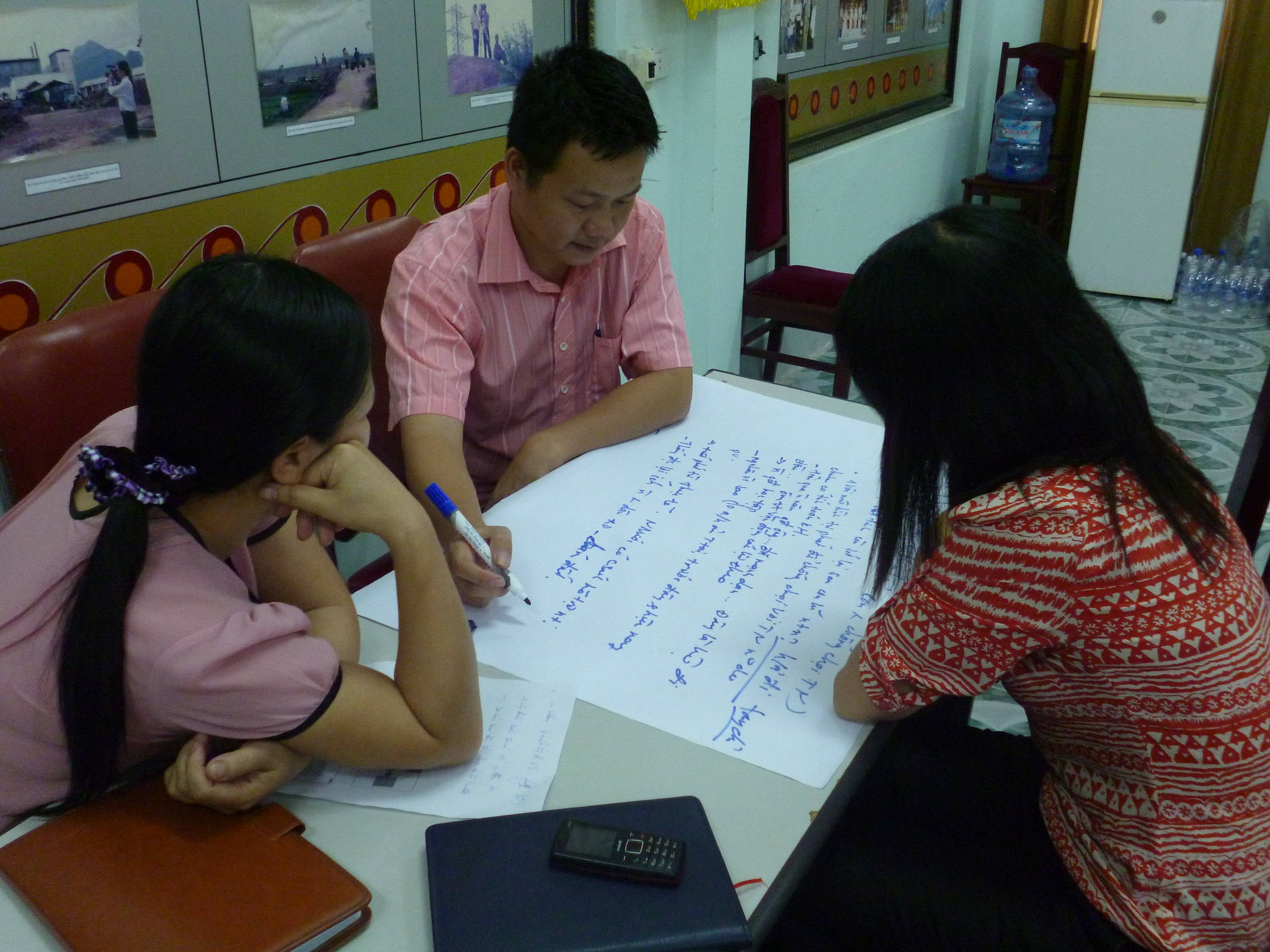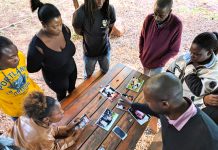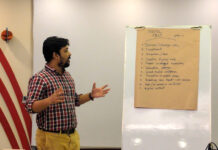Media training has to be continually refreshed and updated

Those invited to help the media overseas need to ensure that the training they offer is continually refreshed.
It takes more time and costs more to produce, but media training must be continually reworked and customised so that it is sensitive to local issues and better addresses local needs.
And trainers working in transition and post-conflict countries and areas where freedom of expression is under threat need to understand that they may have as much to learn as they have to give. If we get it wrong we could do more damage than good.
1: Address the real need
Assessments of training needs carried out by Western media development organisations sometimes examine only superficial technical flaws in media production and delivery.
Such an approach deals only with the cosmetic and may miss the point. Training offered to address perceived shortcomings in what appears on screen, on air or in print may simply make bad journalism look prettier. That is not the where the need lies.
2: Don’t take the lazy option
Off-the-peg training modules, dusted down and delivered like a mass market product, won’t work. The majority world deserves better.
Only bespoke, tailor-made training is fit for purpose. To fashion appropriate training, those offering it need to listen, observe and learn; it is a two-way process. Trainers need to understand the pressures under which the journalists in the host country live.
3: Continually revisit your offering
Reassess your training modules after every trip. Don’t serve up the same material for each client.
The lazy and arrogant option is to feel that you can land in any country and offer a set of tired and worn training modules that may well have been tried and tested in the West, but have absolutely no relevance in the majority world.
There will be different needs and subtle changes in emphasis required. Learn from each visit. Be prepared to ditch everything and start again.
Solutions that worked well 10 years ago in New York, Paris or London may not work today in Jakarta. Training offered in Jakarta last month will not be appropriate for Hanoi next week.
4: Respect those you are trying to help
Those sitting in front of you will probably be working in journalism 10 hours a day and seven days a week. They will be experiencing pressures you may never have come across.
Make sure your solutions are not based on what you did 10 years ago. Spend time in the newsroom with local journalists in order to understand the pressures under which they work.
Realise that those sitting in front of you may well be ahead of you and, even worse, may be too polite to tell you. Take time to understand and, if necessary, return to your hotel, rip up your script and start again.
5: Keep an open mind
Don’t rubbish or trivialise what those you are trying to help do before you understand why they do it.
If a newspaper in South East Asia decides to update its Facebook page before a story has been published in print and online it may be because the journalists know that their Facebook following is 10 times that of its print run and online following combined.
6: Be prepared to be totally humbled
Realise you don’t know best, you may have just been dealt a better hand.
In the West, many journalists are taken out by the rich and powerful and wined and dined. In some of the countries in which you’ll be working, the journalists are taken out by the rich and powerful with bullets and bombs.
Accept that at first you may have little in common with those you are trying to help. Your daily rate may be five times what those you are working with earn in a month.
If they turn up late and leave early it may not be because they are lazy, it may be that they are doing three jobs to make ends meet. Don’t talk down to people before you know the facts.
Respect that those sitting in front of you have probably paid a much greater price for media freedom than you will ever pay – or would be prepared to pay if it came to the push.
Don’t underestimate the sacrifice people make for the vocation of being a journalist. It is rarely for self advancement or material gain, and it is almost always at personal cost and continuing personal risk.
7: Be sure you know who sent you and why?
Training programmes supported by foreign funders responding to politically-focused calls for proposals may do the receiving media organisation no good at all. They may even set them back rather than move them forward, and they will rarely address their needs.
I know of a case in which the editor of a media organisation in a transition country told his staff to turn up for the first session because the training brought with it funding for equipment. As a result, the bewildered trainer was left staring at empty chairs after the first coffee break. But the box was ticked.
Soon after, the donor departed to the next area where those pulling the strings felt that their influence was needed.
8: Always ask what happens next
Media development is a business. The organisations offering assistance have to cover core costs and pay the bills out of the funds raised. They are in competition with one another. They are pitching for tenders, writing proposals and constantly striving to drum up work. In accepting the contract you are accepting their terms. Be sure to ask whether there are sufficient funds to finish the job.
Beware of media training that appears to lack any provision for follow-up. One-off intervention serves little purpose.
In one case I was told by a media development organisation that what happens next was “not my concern” because the project (as set out in the project proposal) was complete. I had been paid and therefore, presumably, I should no longer care.
That experience was part of the inspiration for the setting up of this site, Media Helping Media, but that’s another story.
9: Achieve buy-in from the top
Ensure that there is full buy-in from the media organisation concerned before you get on the plane.
Insist on communication with senior managers in the host media company before any training takes place.
Talk through what is needed. Find out about their target audience. Try to understand the market conditions and the political pressures. See how far they are prepared to go.
There is nothing worse than offering training that may inspire the journalists on the newsroom floor and out in the field only to find that they are not allowed to implement what they learnt after you leave. That leads only to disillusionment and resentment.
10: Ensure that you do no harm
Make sure that whatever you do will not endanger those with whom you are working.
Operate on the basis that in some countries there will be those in the audience who are charged with reporting back. They may also be on the lookout for those who respond to your training in a way that they may consider to be a threat.
This is particularly important when training people about editorial ethics. Objectivity and impartiality sound good in the West, but seeking to achieve both could result in a journalist being reprimanded.
You need to have a long-term strategy. Do not push them too far at first. Let them decide what is possible and what is appropriate, and be there to support them in what they feel will work for their country and their people.
11: Get the basics right
Don’t push investigative journalism programmes in an immature and still developing media market – especially in a transition country – until they have got the basics right.
Share your experience in uncovering sourced, verified and attributed facts and presenting those in a way that informs the public debate.
Investigative journalism for some will mean getting revenge on those they see as the bad guys prior to transition.
That will inflame the situation. Start with the journalism basics and offer investigative journalism training only when the media landscape has matured.
12: Be discerning in choosing who to work with
Get involved only in projects focused on building local capacity and which aim to transfer skills and empower local journalists.
Give priority to projects that aim establish sustainable media training delivered by locals who have become trainers of trainers.
Have a clear exit strategy before you apply for your visa. Make sure that it is about making those you work with great and able to develop without an ongoing dependency on you or those who sent you.
Always try to identify the media leaders of today and the media leaders of the future and work with both. And always say thanks for those who let you work in their country.








